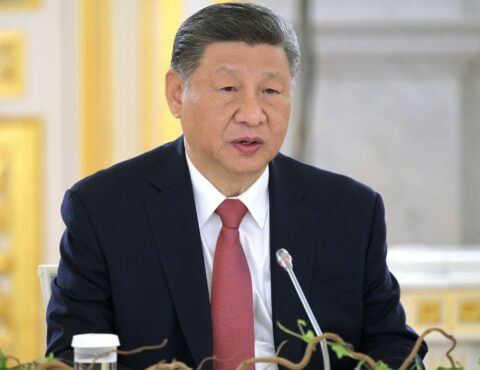In a strategic pivot, several major Chinese companies are now reportedly expanding their operations in Brazil, aiming to tap into new markets as competition and trade tensions with the United States escalate.
This shift reflects a broader trend of Chinese firms seeking growth opportunities abroad amid tightening regulations at home.
Notably, Meituan, China’s largest food delivery service, announced plans to invest $1 billion in establishing operations in Brazil. Analysts suggest that the domestic market for Meituan may be reaching its saturation point.
“The golden time for Meituan’s food delivery business in China may be over,” said Ernan Cui, a consumer analyst at Gavekal Dragonomics in Beijing. Increased competition and stringent regulations have prompted the company to explore international avenues for growth.
In addition to Meituan, other Chinese firms are also making significant investments in Brazil. Mixue, a multinational fast-food chain, has revealed plans to hire thousands of employees in the country.
Similarly, Temu, a popular Chinese e-commerce site, began selling products in Brazil last year, aiming to capitalize on the growing consumer market.
The recent end of a tariff loophole by the Trump administration has further motivated these companies to shift focus.
The loophole allowed certain packages from China valued at $800 or less to enter the U.S. duty-free, benefiting e-commerce giants like Temu and Shein.
As these advantages diminished, Chinese companies are now looking southward for new opportunities.
“Chinese companies are finding it harder to grow domestically,” noted Vey-Sern Ling, an equities adviser at Union Bancaire Privée in Singapore.
“Exports and overseas expansion is one way to support continued growth.” In May, Chinese enterprises pledged approximately $4.7 billion in investments in Brazil, targeting sectors such as automotive manufacturing and renewable energy.
Chinese President Xi Jinping’s recent meeting with Latin American leaders, including Brazil’s President Luiz Inácio Lula da Silva, underscores the importance of these relationships. As Chinese companies venture into foreign markets, market dominance often takes precedence over immediate profits, as pointed out by Heatherm Huang, a technology analyst in Hong Kong.
The expansion of Chinese corporations into Brazil raises questions about the implications for local economies and global trade dynamics.
As these companies establish a stronger foothold in Latin America, the potential for increased economic interdependence between China and the region grows, presenting both opportunities and challenges for the future.
[READ MORE: Iran Warns of ‘All-Out War’ If U.S. Enters Conflict]









